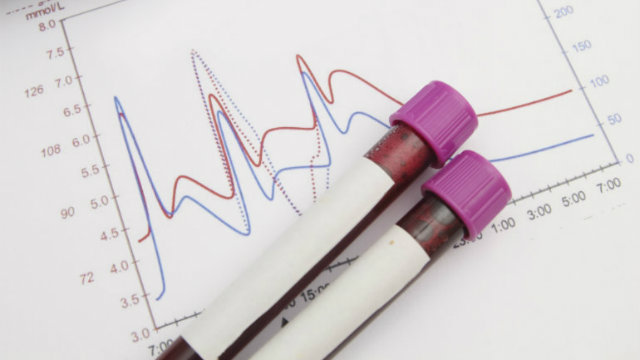
I’ve always looked at health as an entire system working together. You can have a great pancreas, but if you also have a broken elbow, then you aren’t healthy. And in certain disease states, getting better doesn’t necessarily mean you’re out of the woods.
As such, I was extremely intrigued by a recent study that came out regarding cancer survivors and their possible increased risk of heart disease.
Unfortunately, it’s rare that someone hasn’t had experience with cancer, either directly or with a friend or family member. The more we can learn about not only beating and preventing cancer, but also its lasting effect on the rest of the body, then the better quality of life will be for those afflicted.
Let’s take a look at the study and gain an appreciation for the data it shows and how it may help you or someone you love in the future. Keeping in mind the study’s strengths and weaknesses, we will look for takeaways regarding cancer prevention, too.

First: The Details on This Study
Before we dive into the actual study, there are a few important things to consider when looking at research. This particular cancer study is more of an observational type. This means the researchers gathered data on a large amount of people who have survived various cancers. They did not provide an intervention or treatment. They simply observed cancer survivors and also tracked an equal amount of people who did not have cancer.
This observational data is extremely valuable because it shows potential trends and helps future studies target exact mechanisms. In other words, observing trends helps us have more targeted questions. It also helps future researchers design specific studies to illuminate any potential reason why a certain thing may happen. In the case of the study, an observational link exists between surviving cancer and being at an increased risk of heart disease.
The study, which was just published within the past few months, followed over 30,000 cancer survivors who were diagnosed between 1998 and 2011. The types of cancer observed were breast, prostate, non-Hodgkin, Hodgkin, lung, trachea, basal cell skin, and colorectal. The researchers picked a person who was cancer free and matched them by age to each survivor. These cancer-free people served as a relative control group.

The cancer patients were screened to be sure they didn’t have any existing heart disease. The patients followed were anonymous, but the researchers were able to track all their data. Therefore, researchers were able to pick up on cardiovascular disease by seeing prescriptions for heart-related medicine. Drugs like beta blockers and diuretics were excluded from being flagged because they can be used for more than heart disease issues. The main things the study looked at was medications for high blood pressure, cholesterol, and diabetes.
What The Researchers Found
- Compared to the control subjects, survivors showed an increased risk of cardiovascular disease for trachea, lung, and prostate cancers.
- Interestingly, prostate cancer survivors who did not receive hormone treatment had no increased risk of any cardiovascular issues.
- Subjects with types of cancers other than trachea, lung, and prostate did not show an increased chance of having a heart-related issue.
What We Still Don’t Know About Cancer and Heart Disease
- A study of this nature has certain limitations. The researchers were not able to adjust for body weight, smoking, and other lifestyle issues prior to any diagnosis. Genetics, lifestyle, work life, family life, and many other variables were unknown. Researchers simply looked at numbers, and not at the people themselves.
- We also don’t have a completely accurate way of determining if there really was a heart disease issue. Being prescribed a medication for high cholesterol may not necessarily mean there was a disease state, and there is no guarantee the patient filled the prescription.
- Further studies are needed to both confirm the trends noted in this study by examining another similar population and to start testing potential reasons these correlations may exist.
What We Did Learn About Cancer and Heart Disease
The finding that jumps out to me is that only certain types of cancer showed a statistically significant effect in regard to heart disease. The fact that prostate cancer only with hormone therapy showed an increased risk of heart disease is indicative of the fact that the type of treatment and therapy may dictate the risk.
For example, chemotherapy and radiation are damaging to the body and could cause future problems. The skin cancer survivors who did not receive these types of harsh treatment did not have an increased chance of having cardio issues, which is promising. Skin cancer is usually not treated with chemotherapy or radiation, and therefore these patients did not receive these treatments. Skin cancer patients, as a whole, did not show increased risk. Perhaps this was due to the method of treatment, but breast and colorectal cancer patients who did go through chemo or radiation showed no increased risk either.

Perhaps it’s something about prostate, trachea, and lung cancers that just causes future issues. Something tells me the type of treatment does increase heart disease risk, but genetic and lifestyle factors probably also play a role. I would imagine the healthier the people are before diagnosis, the better off they will be. Hopefully, future studies can dive into this further.
Our Takeaways on Cancer and Heart Disease
As you may have noticed, a good observational study leaves more good questions than answers. This one didn’t disappoint. The things I took away from this study involve the experience of receiving the cancer diagnosis as well as preventative measures to target specific cancers post treatment:
- One thing we know for certain is that uncontrolled stress is not good for the heart, or any other part of the body, for that matter. Receiving a diagnosis of cancer is, as best as I can imagine, a very stressful time. Family support, work environment, finances, insurance, and access to healthcare can all increase or decrease stress depending on the situation. Controlling stress by having support could be a proactive way of improving health post cancer treatment. The medical team, for obvious reasons, are focused on beating the cancer. So, perhaps a program or intervention that looks into overall health before, during, and after treatment can help improve longevity and quality of life.
- Diet can play an important role in health both during and after cancer treatment. Perhaps a study looking at type of cancer treatment and the role certain foods and nutrients can play in both helping the treatment work and limiting damage is warranted. The same thinking for exercise could be an additional study. We not only want to beat cancer, we want to kick its butt and have no lingering effects for the rest of the patient’s life. Food and exercise could play a large role.
- A third observation is that perhaps there is still an increased risk of cardiovascular problems longer than the study’s duration, which was up to thirteen years post diagnosis, with not every patient in the study receiving the full thirteen years of follow-up. Perhaps different types of cancers and treatments take longer to show negative health consequences. There is also the possibility of mental health effects after cancer, because it is quite a traumatic time. Mental health struggles could lead to less healthy lifestyle choices. Having periodic mental health evaluations could play an important role for overall health following such a hard time.
On a more global level, surviving traumatic and difficult health problems takes a toll on the body. The longer the duration and the harsher the treatment, it’s reasonable to assume there could be negative health consequences. This brings us back to the “why” of making lifestyle changes.

We can certainly lower our risks of many diseases by eating properly and exercising, but we can also increase our chances of survival and thriving after a problem occurs. Looking good on the beach is a fun and worthy goal — but I encourage you to dig a bit deeper as well. Perhaps we can strut on the beach and improve our longevity at the same time. By approaching a healthy lifestyle the right way, like the principles of Whole Life Challenge suggest, we can accomplish both goals.
Studies like this one I have discussed are important in advancing cancer research and survival. They also serve as reminders that health involves the entire body, and getting started today, not tomorrow, is the key.



































